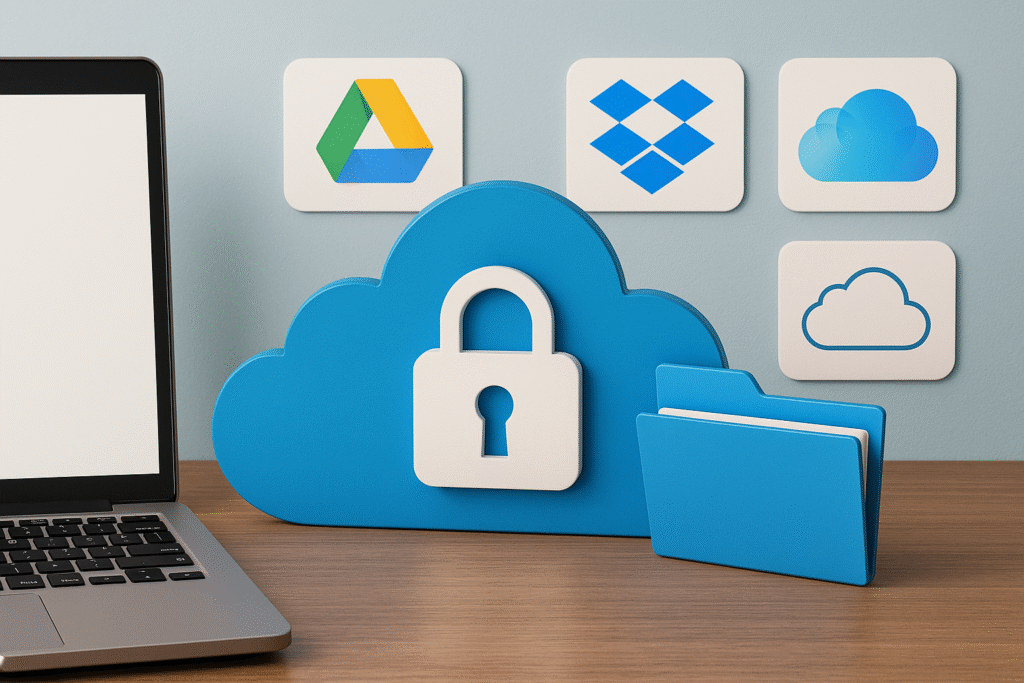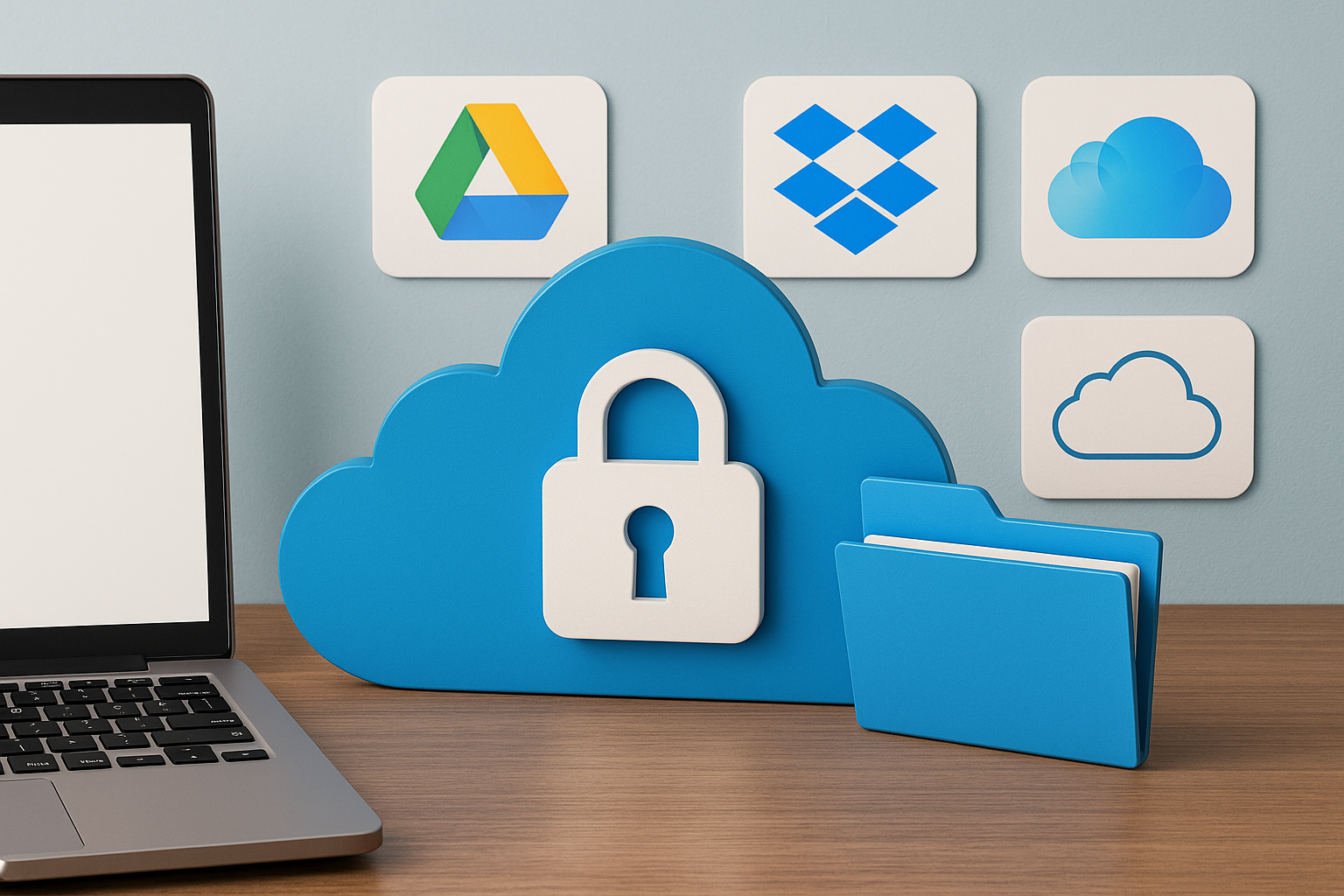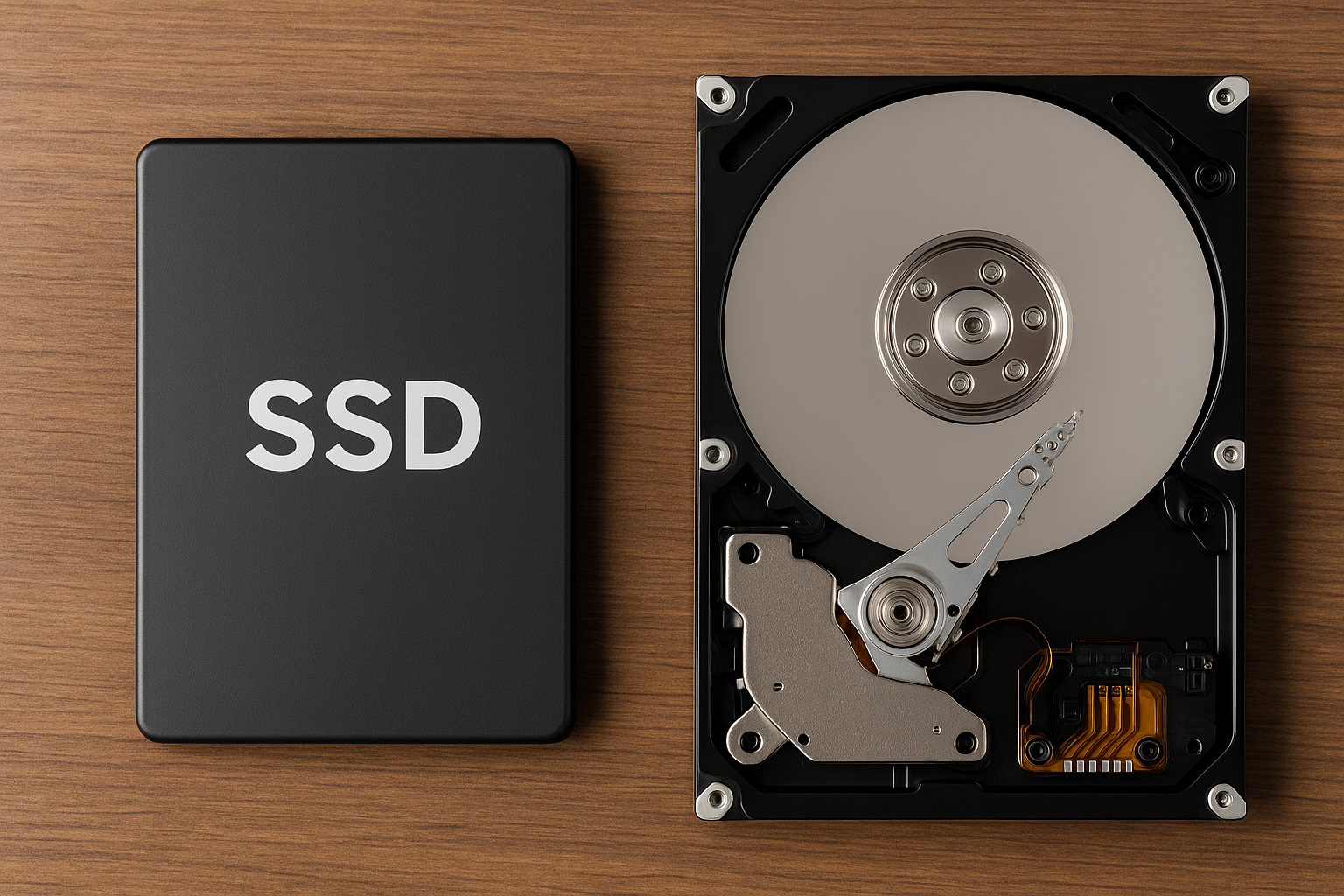In an age where digital data is the backbone of both personal and professional life, securing your files with a reliable cloud storage platform has become more crucial than ever. Cloud storage allows you to store, access, and share files from anywhere while providing a backup against hardware failure, theft, or accidental deletion.
This guide covers the top cloud storage platforms in 2025, evaluating them based on usability, storage capacity, pricing, security features, and who they’re best suited for. Whether you’re looking for a free option for personal use or a robust solution for business, this comprehensive list has you covered.
Why You Need Cloud Storage
Before we explore the best platforms, let’s quickly understand why cloud storage is essential:
- Accessibility: Access files from any device, anywhere in the world.
- Backup and recovery: Protect against accidental loss, theft, or system failure.
- Collaboration: Share files and work on projects with others in real time.
- Syncing: Keep files updated across all devices automatically.
- Security: Most providers offer encryption and user permissions.
What to Consider When Choosing a Cloud Storage Provider
When selecting the right cloud storage for your needs, keep the following in mind:
- Storage capacity: How much space do you need?
- Ease of use: Is the platform intuitive and easy to manage?
- Device compatibility: Does it work well across your devices and OS?
- Security features: Are files encrypted? Does it offer 2FA?
- File sharing and collaboration: How easy is it to share files?
- Price and plans: Are there free options? Is the upgrade worth the cost?
1. Google Drive
Best for: Gmail and Android users, students, and collaboration.
Google Drive is one of the most widely used cloud platforms thanks to its integration with Google Workspace apps (Docs, Sheets, Slides, Gmail).
- Free storage: 15 GB shared with Gmail and Google Photos
- Paid plans (Google One):
- 100 GB – $1.99/month
- 200 GB – $2.99/month
- 2 TB – $9.99/month
- Key features:
- Real-time collaboration
- Integration with Google Meet, Calendar, and Keep
- Built-in document editors (no additional software required)
- Advanced file sharing with link restrictions
2. Dropbox
Best for: Freelancers, businesses, and file syncing.
Dropbox is known for its simplicity and file syncing capabilities. It’s especially popular with creative professionals and small businesses.
- Free storage: 2 GB (expandable via referrals)
- Paid plans:
- Plus (2 TB) – $11.99/month
- Family (2 TB shared) – $19.99/month
- Professional (3 TB + features) – $19.99/month
- Key features:
- Dropbox Paper for real-time collaboration
- Smart Sync to save local storage
- File version history and recovery
- Integration with tools like Slack and Zoom
3. Microsoft OneDrive
Best for: Windows users and Microsoft 365 subscribers.
OneDrive works seamlessly with Windows and is tightly integrated with Office tools.
- Free storage: 5 GB
- Paid plans:
- Standalone 100 GB – $1.99/month
- Microsoft 365 Personal (1 TB) – $6.99/month
- Microsoft 365 Family (6 TB total) – $9.99/month
- Key features:
- Real-time co-authoring in Word, Excel, PowerPoint
- Built-in file protection and ransomware detection
- Seamless file syncing with Windows File Explorer
4. iCloud Drive
Best for: Apple users.
If you’re in the Apple ecosystem, iCloud Drive offers native syncing across iOS and macOS devices.
- Free storage: 5 GB
- Paid plans:
- 50 GB – $0.99/month
- 200 GB – $2.99/month
- 2 TB – $9.99/month
- Key features:
- Automatic photo, video, and document sync
- End-to-end encryption
- Family Sharing
- Works with Notes, Mail, Safari, and iWork apps
5. pCloud
Best for: Media storage and lifetime plans.
pCloud stands out for its secure file storage and one-time lifetime payment plans.
- Free storage: 10 GB
- Paid plans:
- Premium (500 GB) – $49.99/year or $199 lifetime
- Premium Plus (2 TB) – $99.99/year or $399 lifetime
- Key features:
- Built-in media player
- File versioning and backups
- Store files from other platforms like Dropbox or Google Drive
- Optional Crypto folder for client-side encryption
6. MEGA
Best for: Privacy and encryption.
MEGA is based in New Zealand and is a privacy-first platform with generous free storage.
- Free storage: 20 GB
- Paid plans:
- 400 GB – €4.99/month
- 2 TB – €9.99/month
- 8 TB – €19.99/month
- Key features:
- End-to-end encryption
- Secure chat and file sharing
- Password-protected links
- File recovery and backup
7. Sync.com
Best for: Encrypted cloud storage.
Sync.com is a Canadian-based provider that offers strong privacy compliance and encrypted file storage.
- Free storage: 5 GB
- Paid plans:
- 2 TB – $8/month
- 6 TB – $20/month
- Key features:
- Zero-knowledge encryption
- GDPR and HIPAA compliance
- Expiry dates and password protection for shared files
8. Icedrive
Best for: Budget-conscious users looking for simplicity.
Icedrive is a newer entrant in the cloud market, but it offers a beautiful interface and strong encryption.
- Free storage: 10 GB
- Paid plans:
- 150 GB – $1.67/month
- 1 TB – $4.17/month
- 5 TB – $15/month
- Key features:
- Virtual drive mount (acts like a local hard drive)
- Encrypted storage (Twofish encryption)
- Lightweight apps for Windows, Android, iOS
9. Amazon Drive (Note: being phased out)
Previously popular among Prime members, Amazon Drive is being phased out, with photos now supported exclusively through Amazon Photos.
- Recommendation: Use only for Amazon Photos or transition to other services.
Choosing the Right Platform for You
Here’s a quick breakdown of who each platform is best for:
| Platform | Best For |
|---|---|
| Google Drive | Collaboration, students, Google users |
| Dropbox | Freelancers, teams, file syncing |
| OneDrive | Microsoft 365 users, Office integration |
| iCloud Drive | iPhone, iPad, and Mac users |
| pCloud | Media storage, long-term value |
| MEGA | Privacy and security |
| Sync.com | Compliance-focused professionals |
| Icedrive | Beginners and budget users |
Tips to Maximize Your Cloud Storage
- Clean up regularly: Delete outdated files and duplicates.
- Compress large files: Use ZIP or RAR formats to save space.
- Use two platforms: Separate work and personal files.
- Enable two-factor authentication: For added security.
- Backup to external drives periodically: For extra safety.
Final Thoughts: Secure Your Digital Life
No matter your profession or lifestyle, cloud storage is now a fundamental part of digital life. Whether you’re backing up personal photos or collaborating on business files, the right platform helps ensure your data is safe, organized, and always within reach.
With so many reliable and feature-rich options available in 2025, you don’t have to compromise on storage, security, or affordability. Choose one that fits your needs today—and scale up as you grow.








